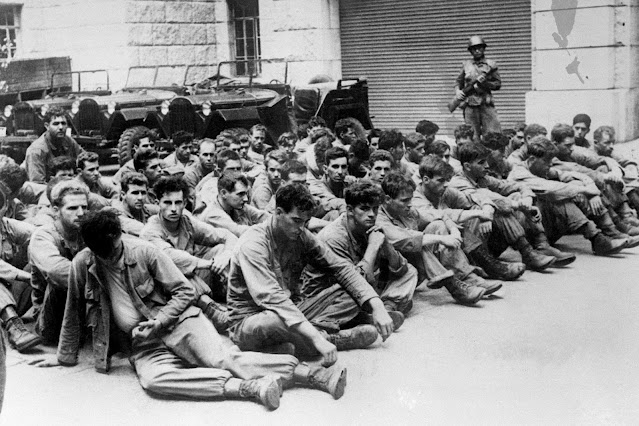In the aftermath of the Korean War, just over 10 years before, we all had memories of reading about and seeing early television news accounts of U.S. government investigations into the behavior of some American prisoners of war in North Korea and mainland China. The gist of it was that in prison camps for Americans, it was every man for himself.
Since those days, I've come to know officers who were prisoners of war there, and I now see much of that as selective reporting and as a bum rap.
However, there were cases of young soldiers who were confused by the times, scared to death, in cold weather, treating each other like dogs fighting over scraps, throwing each other out in the snow to die, and nobody doing anything about it.
This could not go on, and President Eisenhower commissioned the writing of the American Fighting Man's Code of Conduct. It was written in the fonn of a personal pledge. Article 4:
"If I become a prisoner of war, I will keep faith with my fellow prisoners. I will give no information or take part in any action which might be harmful to my comrades. If I am senior, I will take command. If not, I will obey the lawful orders of those appointed over me and will back them up in every way."
In other words, as of the moment Eisenhower signed that document, American prisoners of war were never to escape the chain of command; the war goes on behind bars.
"If I become a prisoner of war, I will keep faith with my fellow prisoners. I will give no information or take part in any action which might be harmful to my comrades. If I am senior, I will take command. If not, I will obey the lawful orders of those appointed over me and will back them up in every way."
In other words, as of the moment Eisenhower signed that document, American prisoners of war were never to escape the chain of command; the war goes on behind bars.
—from James B. Stockdale, Master of My Fate: A Stoic Philosopher in a Hanoi Prison


No comments:
Post a Comment